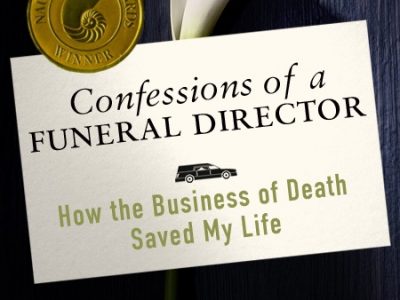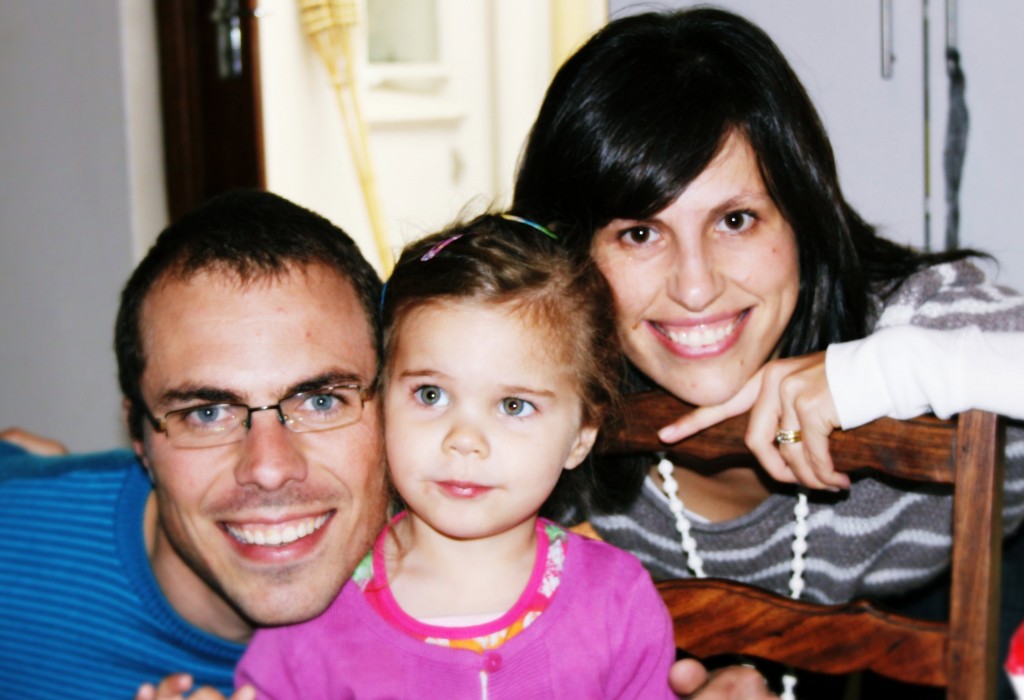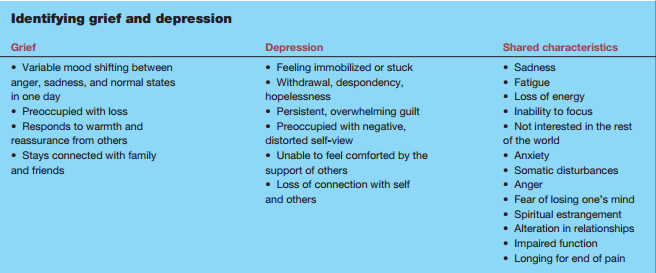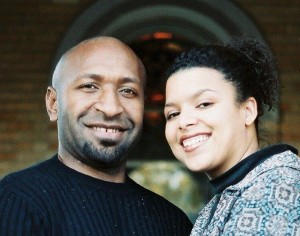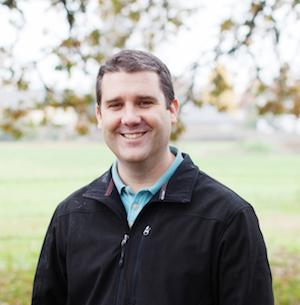Five Rights of a Funeral Consumer
Every time tragedy strikes, the swindlers come out in drovers. In fact, a couple scam artists set up fake charitable organizations during the Sandy Hook School Shooting and were taking “donations” for the families of the victims. There are few words to describe the awful level of humanity one must adopt to scam those experiencing tragedy. And while we’d like to think scamming those at their weakest moment is a confined event, it takes place as a matter of practice by some who are masquerading as “funeral directors.”
I’d like to say that ALL funeral directors are in the funeral business to serve people, but sadly there are those who are looking to profiteer on humanity in their weakest moment. Yes, many — even most funeral directors — are good people, but there are some.
In 1984 the Federal Trade Commission established The Funeral Rule. It was created to protect you, the consumer, from scam artists who hide under the guise of respectable, here-to-help-you “undertakers.” Even decent funeral directors tend to bend parts of the The Funeral Rule, and I – being a funeral director – know which parts tend to be bent.
Let me highlight those parts of The Funeral Rule that you, as the consumer, should be aware:
One. A burial vault is NOT required by state law. Most cemeteries require a vault to keep the ground from eventually caving in, but some do not require vaults. If you don’t want to pay the extra expense of a burial vault, find a cemetery that doesn’t require them!
Two. While embalming still constitutes the “traditional funeral”, it is NOT required. In fact, we must have the permission of the next of kin to embalm. You can even have a public viewing with an unembalmed body. No worries, no one will catch death if an unembalmed body is displayed in public. *Some states require embalming when transporting a body from one state to the next.
Three. You don’t need a casket for cremation. Profiteering funeral directors will try to sell a rather pricey “alternative container” for cremation, but most crematories only require a body bag that keeps body fluids contained.
Four. You don’t have to buy the casket, urn or merchandise from the funeral home. You can buy it from a third-party, such as Wal-Mart; or, you can make it yourself.
Five. Our “basic service fee” is necessary to pay, but everything else is an optional item/service to be purchased, such as a casket and even transportation of remains (you can do this yourself … although you need to go through the proper channels).
When all is said and dead, if you want a “traditional” funeral or cremation, it should be more cost effective and efficient to use your local funeral home’s services and products, but sometimes it’s not. I advise you to price shop BEFORE you pass. Some funeral homes are nearly twice as expensive as others and it’s helpful to find that out before you die.
There are funeral directors who are legally sound, but ethically stinky in their pricing. Make sure you find a funeral director that YOU can trust with your funeral and your money. And know your rights.
Unable to Say a Last Goodbye: A Guest Post
Today’s guest post is from Pastor Melanie Thirion. Melanie lives with her family in South Africa. She tells me that English isn’t her first language, but she writes better than I do!
Here’s her bio: I am a follower of Christ, a wife to a very humble man named Christi, who happens to be a minister too (another story for another day). I am the mother of a spirited angel called Caro. I’m a youth minister in the Dutch Reformed Church, Kenridge congregation to be exact, in Cape Town, South Africa. I am also a part-time lecturer in Practical Theology (youth ministry) at Faculty of Theology, University of Stellenbosch.
*****
In the first congregation where I ministered, I made a friend that was much older than me. She was a wise woman, someone who had a strong sense of justice and lived closely with Christ. She had a servant heart. While her children were part of the youth ministry, she and her husband were committed to the ministry, always driving lift-less teens to church (the age for a drivers licence in South Africa is 18 years), taking in troubled teens, showing them that loving parents still exist in this day and age.
When my baby girl was born, she looked after her when I had to return to work. I never had to consider day-care for my baby, she took the responsibility. Probably the best gift she could have given me and my girl. Since my parents, as well as my husband’s, live far away, she was my baby’s grandmother. Her house is the first place my baby slept right through the night. I believe she poured wisdom and love and grace into my girl’s life.
I then changed congregations, but still drove 20 minutes, once each week, for my little girl to visit my friend.
She became sick with bone cancer about two years ago. The chemo seemed to work and we all prayed that she would heal, as she had overcome breast cancer about 8 years ago. But once the cancer spread to her organs, I knew it was just a matter of time. Three months ago we had a heart breaking conversation when she told me she couldn’t look after my girl anymore. It was a very difficult decision for her to make, as this, for her, marked the beginning of the end. During our conversation, I went into minister-mode and seemed alright with her decision, numbing my emotions as just ministers can do in emotional-laden situations. I was in denial.
Then, the second week of December, we skipped our weekly visit to my friend. I can’t even remember why. And the week after that my friend was in the hospital and her liver failed. I thought I still had time to visit her, to say goodbye. So the next morning, I organised my schedule so that I could go to the hospital early afternoon. When I got into my car to drive to the hospital, her daughter texted me: “Mom just died.” I was too late. And hated myself.
I had a hard time forgiving myself for being too late. Which is kind of self-centered I know. As a minister I know that I shouldn’t beat myself up about that. As with birth, death has a time of its own – independent of anyone’s schedule or preference. But I did beat myself up, a self-directed tantrum. I wanted to say goodbye, I wanted some more time with my friend. I wasn’t ready for her to die. But, as with all the kingdom of God, it’s not about me…. My friend was ready to die. And she did. Although I was disgusted with God.
I found comfort on the day of her funeral. The minister shared with us how we now have a friend among the cloud of witnesses Paul speaks of in Hebrews 12. This scripture, not a typical funeral text, comforted me, and re-affirmed eternal life for me. The thought of my friend being amongst the great faith heroes, where she rightly belongs, gives an eternity to her legacy. I also had the opportunity to spend a minute alone at her coffin, saying goodbye. But the journey did not end there.
I still had a little part of grief that needed to be aired. I took to my paint brushes and painted something that will always remind me of my friend, but also of my God who comforted to me through his Word. Just take note that I am in no way an artist. It’s just the way I deal with emotions. And grief.
Rest in peace my dear friend. For I know that God is with you.
Attached is a picture of the painting I made, drawing inspiration from Hebrews 12:1-2.
Should We Medicate Grief?
The American Psychiatric Association (APA) is about ready to publish their Fifth Edition of the Diagnostic and Statistical Manual of Mental Disorders (DSM-5); and it’s created no small stir among the psychiatrist community.
One of the main issues that psychiatrists are having with the DSM-5 is that it is lumping normal grief into Major Depressive Disorder. Here’s a quote from Dr. Allen Frances, professor emeritus of Duke’s School of Medicine:
(In the new DSM-5) Normal grief will become Major Depressive Disorder, thus medicalizing and trivializing our expectable and necessary emotional reactions to the loss of a loved one and substituting pills and superficial medical rituals for the deep consolations of family, friends, religion, and the resiliency that comes with time and the acceptance of the limitations of life.
*****
There are many shared characteristics between grief and depression, but there’s also some distinct differences. Dr. Ginette G. Ferszt states this:
Although everyone grieves differently, grief and depression share several common characteristics. Both may include intense sadness, fatigue, sleep and appetite disturbances, low energy, loss of pleasure, and difficulty concentrating. The key difference is that a grieving person usually stays connected to others, periodically experiences pleasure, and continues functioning as he rebuilds his life. With depression, a connection with others and the ability to experience even brief periods of pleasure are generally missing. Sometimes people describe feeling as if they have fallen into a black hole and fear they may never climb out. Overwhelming emotions interfere with the ability to cope with everyday stressors.
Here is a chart that shows the similarities and differences between depression and grief.
*****
Should we medicate grief?
Mostly “no”, but in some cases “yes”. Here is when grief may need some type of medication:
- If grief-related anxiety is so severe that it interferes with daily life, anti-anxiety medication may be helpful.
- If the person is experiencing sleep problems, short-term use of prescription sleep aids may be helpful.
- If symptoms last longer than two months after the loss and the diagnostic criteria are met, the person may be suffering from Major Depressive Disorder. In this case, antidepressants would be an appropriate therapy.
Here is are some criteria to determine if grief has transitioned to Major Depressive Disorder.
- Feelings of guilt not related to the loved one’s death
- Thoughts of death other than feelings he or she would be better off dead or should have died with the deceased person
- Morbid preoccupation with worthlessness
- Sluggishness or hesitant and confused speech
- Prolonged and marked difficulty in carrying out the activities of day-to-day living
- Hallucinations other than thinking he or she hears the voice of or sees the deceased person. (From Nancy Schimelpfening’s “Grief and Depression”).
Ultimately, grief is the response to loss. And no amount of medication is going to bring that loss back. We must learn to live with the loss of someone integral to our very being. If medication hurts that learning process, then it’s destructive. If it can help us learn to live in the “new normal”, then it becomes an aid to understanding life after loss.
I think the following quote sums up the core of why medicating grief is usually not healthy:
Finding a Context for Grief: A Guest Post by Jason Hague
“Jason, listen. I think I found a lump.” Karen’s eyes were full of gentle severity. “But hey, we’re okay. We’re gonna get through this. It isn’t our first rodeo.”
Karen was too young for cancer—just thirty four—and full of life. She and her husband George had been my friends for nine years, and part of my family for the last five. They were missionaries, planning to launch out to the South Pacific to eventually start an AIDS orphanage. And after countless encouragements, they believed with all their hearts that she would be healed. After all, she had beat cancer before when she was seventeen, and again (we thought) at thirty-two. That’s why she was so confident.
So they entered the rodeo a third time, pursuing all kinds of treatments; the ones that come from sober doctors in white hospitals, and the other ones from enthusiastic Americans with juicers in Mexico. They got prayer. Lots of prayer, from reserved, gray bearded conservatives, and from young mustached mystics who claimed they saw miracles happen every day.
They went on like that for months, traveling the country, raising funds for their move to the islands, all the while believing against the obvious. She was getting weaker. And weaker.
I got the call while watching a college football bowl game. Karen had collapsed and had a seizure. She was in intensive care. Even brain now, it seemed, was being squeezed by cancerous masses. The doctors were saying it was time.
Before I got in the car for our five hour trek to the hospital, I had an awkward stare-down with my pinstriped suit. As a rule, I don’t wear suits except for mandatory formal occasions. I knew the odds this time. But if I took it… what would that say about my level of faith?
I remember stomping out of my bedroom, tears shaking me from the inside. “Fine, God. I’m leaving the damn suit.” I said aloud. It was as much belief as I could muster in that moment.
Four days of blur followed, and finally, our remaining hope disappeared with our emotional strength. The nurses—Lord bless them—let me sneak my daughters into the ICU to say goodbye to their adopted auntie. She was too weak to say anything, but she hugged them limply. And to each of us, her circle of friends who had become kin, she spelled out farewells on a whiteboard full of letters.
I was in the room when her breath ran out. George was still embracing her, still serenading her body. “You are so beautiful to me.”
I would need my suit after all.
They wanted me to do her funeral, but I just couldn’t. All I could muster was a couple of weak stories about being together, watching Jack Bauer and dreaming of all the exotic ministry we were going to get to do one day. It all seemed so empty. So hollow.
I told God how much it hurt. I didn’t blame Him for her death, but I thought it was a pretty low thing of Him to do, giving words of hope when no hope, in fact, remained. God didn’t answer much. He mostly just listened. I don’t think He ever got offended by my doubts, or my cursing, or my anger. Wasn’t it Jesus, after all, who said to weep with those who weep?I wonder if you can’t talk someone out of pain, even if you’re God.
But eventually, I knew I had to make a decision. I could hold onto my complaint against Him, but only on one condition: I had to first acknowledge His generosity. He had given her seventeen years before she met cancer, then seventeen more after that. He gave her life. Karen was His present to all of us. And in this age, there are no presents that last forever.
So I made a decision to look God in the eye again and thank Him for my friend. This wasn’t so much a matter of religious sentiment as it was intellectual integrity. When gratitude is absent, mourning eventually loses all context and reason. It’s the same lesson I try to give my kids: to say “thank you for my ice cream” instead of pining hard for a second bowl. Even a gift cut short is, first, a gift.
Looking back, I see my own tears had testified of my great privilege: Karen was so lovely and gracious and warm, and I had been her friend. Her brother. Little did I know, my grief was itself building a case for the love and graciousness and warmth of her Maker.
And it made me look forward to the next age, when the Good and Perfect Gifts of our Father will indeed go on and never expire.
*****
Jason Hague is a pastor, writer, and former Youth With A Mission teacher who lives in Oregon with his wife and five Children. He tells honest stories of faith, culture, and autism at JasonHague.com.
You can follow Jason on Twitter and like him on Facebook.
Can We Chemically Induce Near Death Experiences?
“And her eyes opened wide, and she started whispering Jesus’ name … and then she started whispering the names of her dead parents … and she smiled … and moments later she died.”
We hear these stories a couple times a year. And I want to believe them. Those who tell us these stories, tell them with such conviction, such sincerity that I believe the stories themselves are true; but did the dying person REALLY see Jesus … and their parents … before they died?
The interpretation of these stories is where I start to question.
“We just know that Jesus was there, in the room, welcoming mom to heaven!” And I respond, “That’s amazing! Wow! You know for certain where your mom is at!” But I don’t always believe my own words.
It seems like every other year somebody with a near death experience (NDE) has these incredible visions of heaven, they write a book about it and make their millions (See “Heaven is For Real: A Little Boy’s Astounding Story of His Trip to Heaven and Back” for a more recent contribution).
But what happens if these NDEs are simply concoctions of end-of-life chemical reactions?
Dr. Rick Strassman, while conducting DMT research at the University of New Mexico, proposed that a massive release of Dimethyltryptamine (DMT) from the pineal gland prior to death or near death was the cause of the near death experience (NDE).
DMT is a psychedelic drug, producing intense visuals, euphoria and hallucinations; and, according to Dr. Rick Strassman, near death experiences. In fact, DMT is an illegal drug that you can find on the streets. So, if you want a near-death hallucination, go ahead and try some. You can – to some degree – chemically induce a NDE, where you’ll see angels, celestial bodies, heaven … or maybe, if it’s a bad trip, you’ll see the other side. Philosopher Terence McKenna suggested that DMT is a pathway drug to other worlds, as most people who use DMT hallucinate heaven and hell type experiences.
But, Strassman’s hypothesis that the human body produces massive amounts of DMT near death has yet to proven. Even if Strassman’s hypothesis that DMT is the hallucinogenic cause of NDE is false, it still is very possible that other chemicals produce visions of the celestial. We just don’t know for certain, but we hope.
And I imagine hope may be the main drug behind NDE. We hope that heaven waits at death. We hope that Jesus is awaiting us, to welcome us into heaven. We hope that heaven is real. And that hope may be founded on reality, or mere hallucination; but we still hope.
